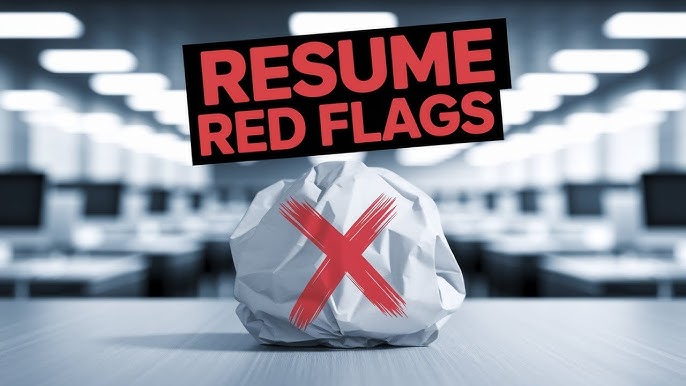Let’s say you’ve been applying for jobs for quite some time now. From reading job descriptions to crafting the perfect cover letters, you’ve been working hard on your applications. It’s been weeks, months even, but you’ve had no luck. No place is calling you for an interview.
So you look through your sent emails, read them all carefully. Everything seems to be fine, you don’t notice anything out of the ordinary. But then you decide to check the attachments.
That’s when you see it, glaring issues in the resume. There’s a big type in your job title, the phone number is wrong, and the formatting, all over the place.
Turns out you’ve been sending the wrong file with your applications. All these mistakes in your resume are easy to miss when you’ve been applying to dozens of places. You think to yourself.
“No wonder no companies have been calling me back.”
Sounds familiar? You’re not alone. Many people like you make such mistakes. These blunders don’t necessarily mean you’re a bad candidate, but they do make hiring managers think twice before they proceed to call you.
Luckily, you’ve come to the right place. In this blog, we’ll be discussing the most common red flags in resumes so your applications are taken seriously.
Upgrade Your Job Applications by Avoiding These CV Mistakes
No matter how perfect you think your CV is, there’s always a chance there’s a chance it has some glaring mistakes. But don’t worry, you can use this guide as a checklist so your applications get you calls for an interview.
Typos that cost more than you think
This is probably the most common mistake people make. A little spelling mistake or grammatical error is only going to create an unprofessional image of you. It’ll show that you can’t pay attention to small things.
Imagine how off-putting an “attention to detail” is going to look on your CV. Grammatical errors don’t look nice either. So, read the file carefully before you submit any applications.
★ Pro tip: Run your document through checkers like Grammarly to spot such errors and fix them.
No one wants to know what your last watch was
We get it, you want your resume to the talking for you. But this doesn’t mean you can include irrelevant information. This is a big red flag. Your document should be concise and contain only the details employers actually want.
Avoid adding any extra information, like your residential address (unless it’s asked for) or your hobbies. If you’re confused about what other things you should exclude, contact a CV writing service Cork.
Structure speaks volumes
Put yourself in a hiring manager’s shoes, think of a resume in which you have to search the entire page to look for the skills section, or contact information. Would you consider the candidate? Definitely not. Something similar happens when mistakes in your resume, like formatting, are too obvious to be ignored.
➢ According to a recent survey, 72% of hiring managers reject CVs with poor formatting and design elements.
From font type, size, to the alignment of the text, pay close attention to every single detail. Remember, recruiters only spend a few seconds looking at applications before they decide if they want to keep reading. A wrongly formatted document will only get you rejected.
Don’t forget the power of numbers
If you want your application to stand out from the rest, you need to quantify your achievements. Here’s how they make a difference
| “Improved sales” |
This is too vague; it doesn’t specify how you made the impact.
| “Boosted sales by 45% over the course of 6 months with the help of new and effective marketing strategies.” |
Notice the difference? This statement shows exactly what you did and how you did it. Recruiters love to see such candidates.
Algorithms matter more than you think
In case you didn’t know, most companies use an Application Tracking System (ATS) to filter resumes. So many applications don’t even make it to the employers’ desks; they’re rejected by the software.
➢ According to a recent survey, around 70% of job applications don’t make it past the ATS check.
Here’s how you can optimize yours for the system:
➔ Use keywords from the job description
➔ Keep the formatting minimal and simple
➔ Add standard subheadings
➔ Save it in the right format
➔ Your voice counts
The way you word the resume speaks volumes about you as a professional. It’s always recommended to use an active tone while describing your experiences and achievements. Here’s an example
| Passive Voice | Social media strategies were designed and executed, which resulted in a 40% increase in followers. |
| Active Voice | Created and executed social media marketing strategies that increased followers by 40%. |
Mind the gap
It’s okay if you had to take a career break. It isn’t a deal breaker for most employers. We all have our own reasons for needing time off. But it becomes a problem only when you refuse to talk about it.
So don’t be afraid to address it. Don’t leave anything up to the recruiter’s imagination. Contact CV help ireland to write it for you or do it yourself. Here’s an example you can use:
| Career Break Jan 2022 – Dec 2022
● Took a career break to improve skills and complete online certifications ● Worked on freelance projects to maintain experience. |
People Also Ask
Is it bad if I have changed jobs a lot?
This can be a red flag if the job shifts are not explained clearly. Try to focus more on your achievements. Mention the reason behind the switches and show how you grew with each one.
Do I need to include every single skill I have?
Not at all, only add the ones most relevant to the job description. Employers don’t have the time to read through long lists, so keep it short.
- Are big paragraphs a bad idea?
Yes, large sections full of text are not easy to read. Use short bullet points for clarity and readability.
Wrapping Up
Your resume is the first introduction recruiters get to you. This document speaks on our behalf in your absence. This is why it’s important to make this first impression count. Red flags like spelling errors, bad formatting, and irrelevant information get in the way of your CV being shortlisted for interviews.
So, carefully read the document before you hit the “send” button. Mistakes in your resume can cost you a really good opportunity. Remember, it’s more than just a file with your work experiences and personal information. It is a useful marketing tool. So make sure it’s polished and professional.


